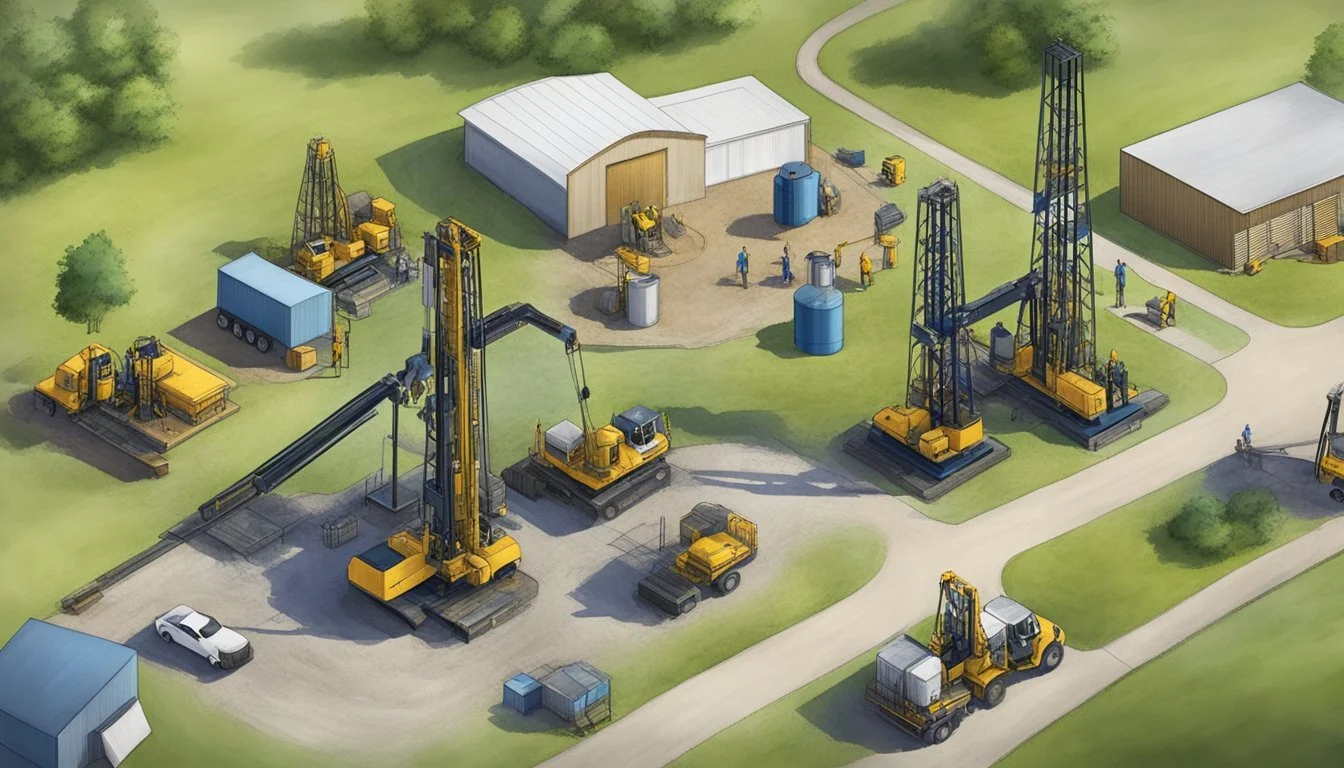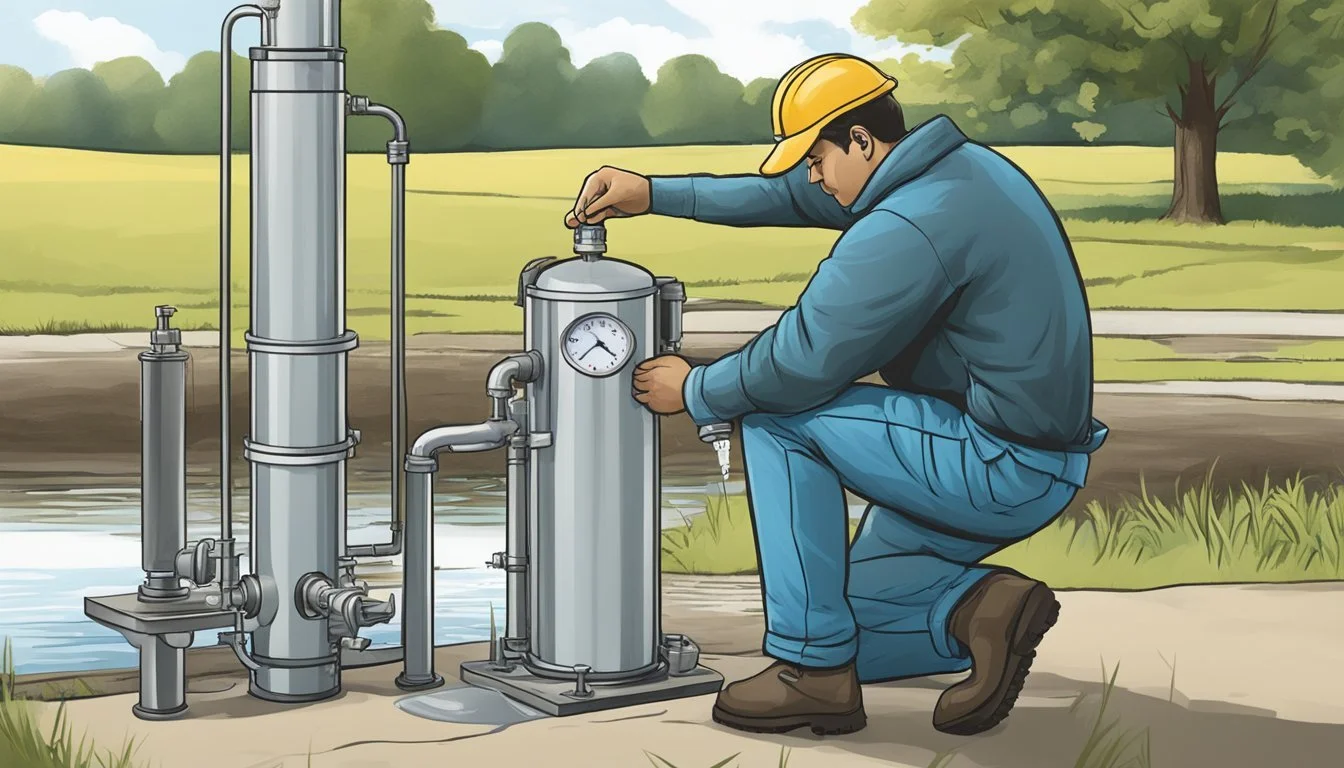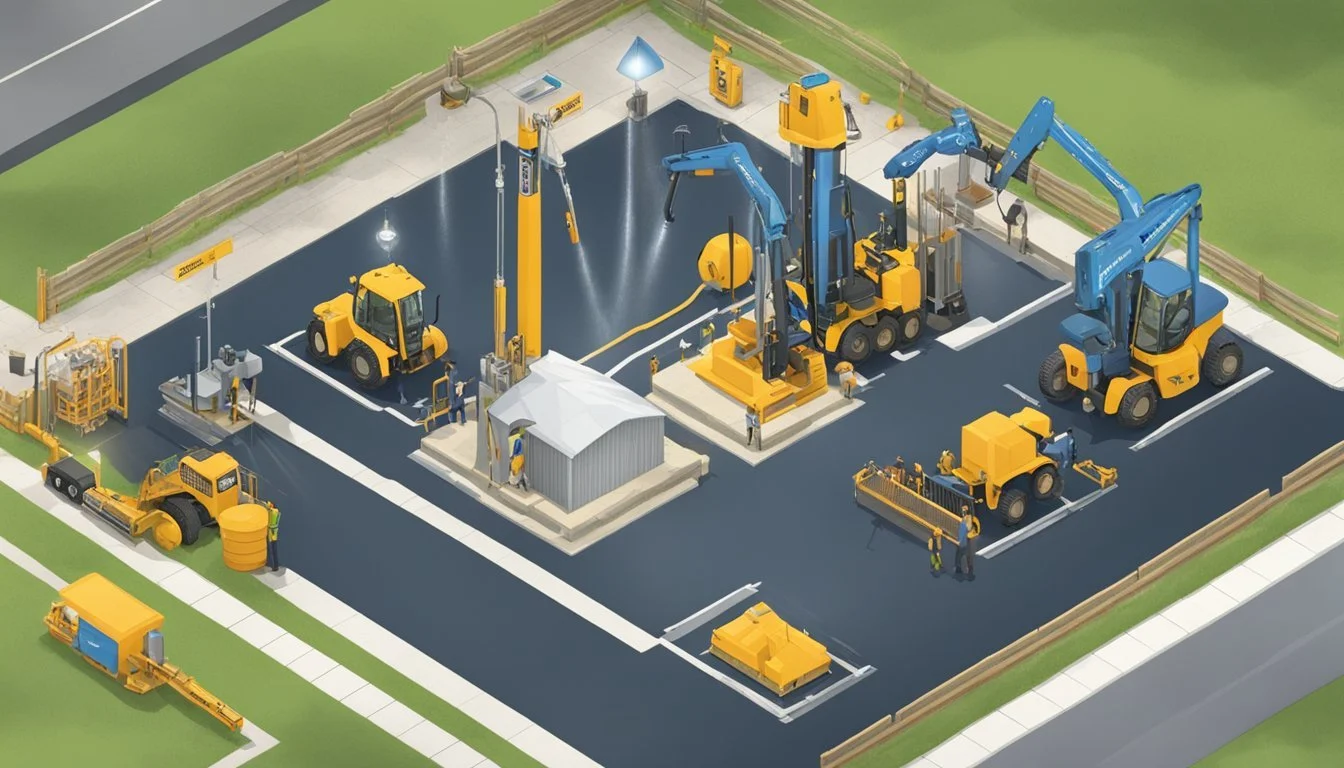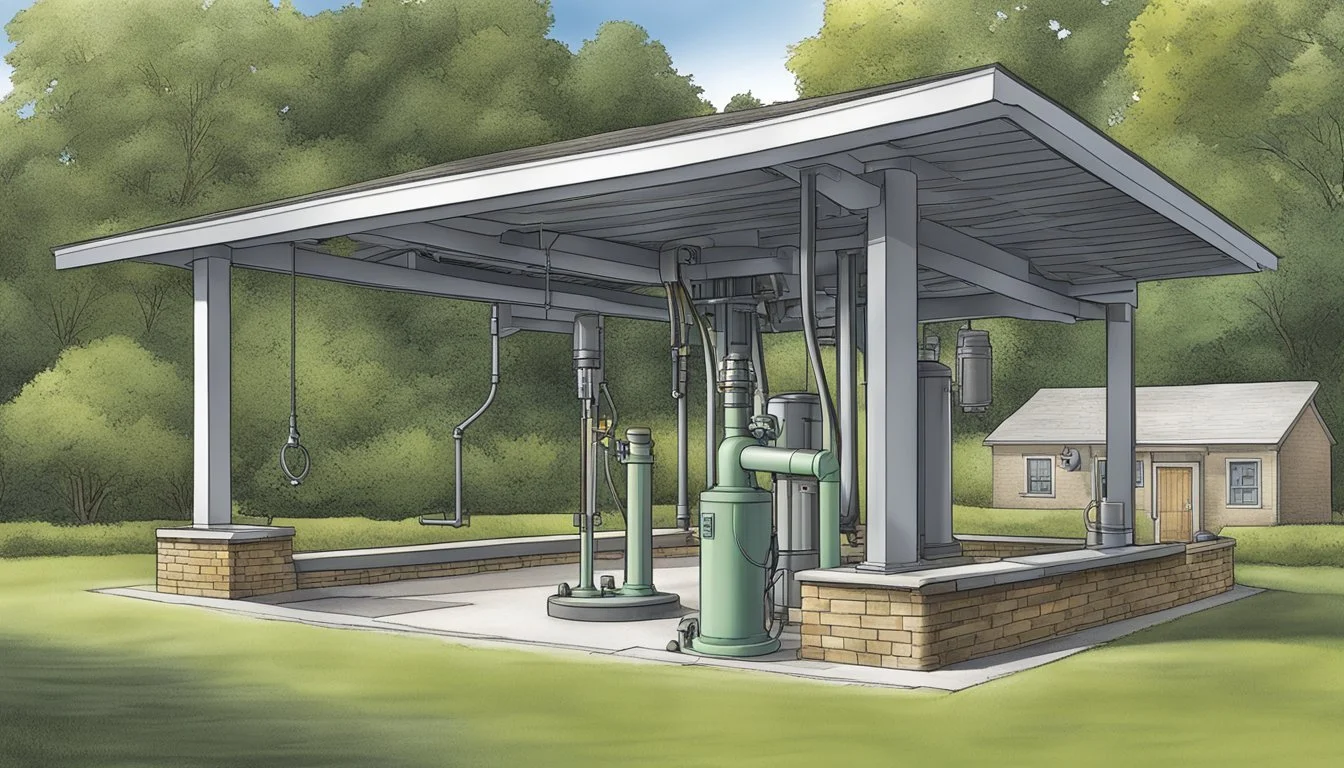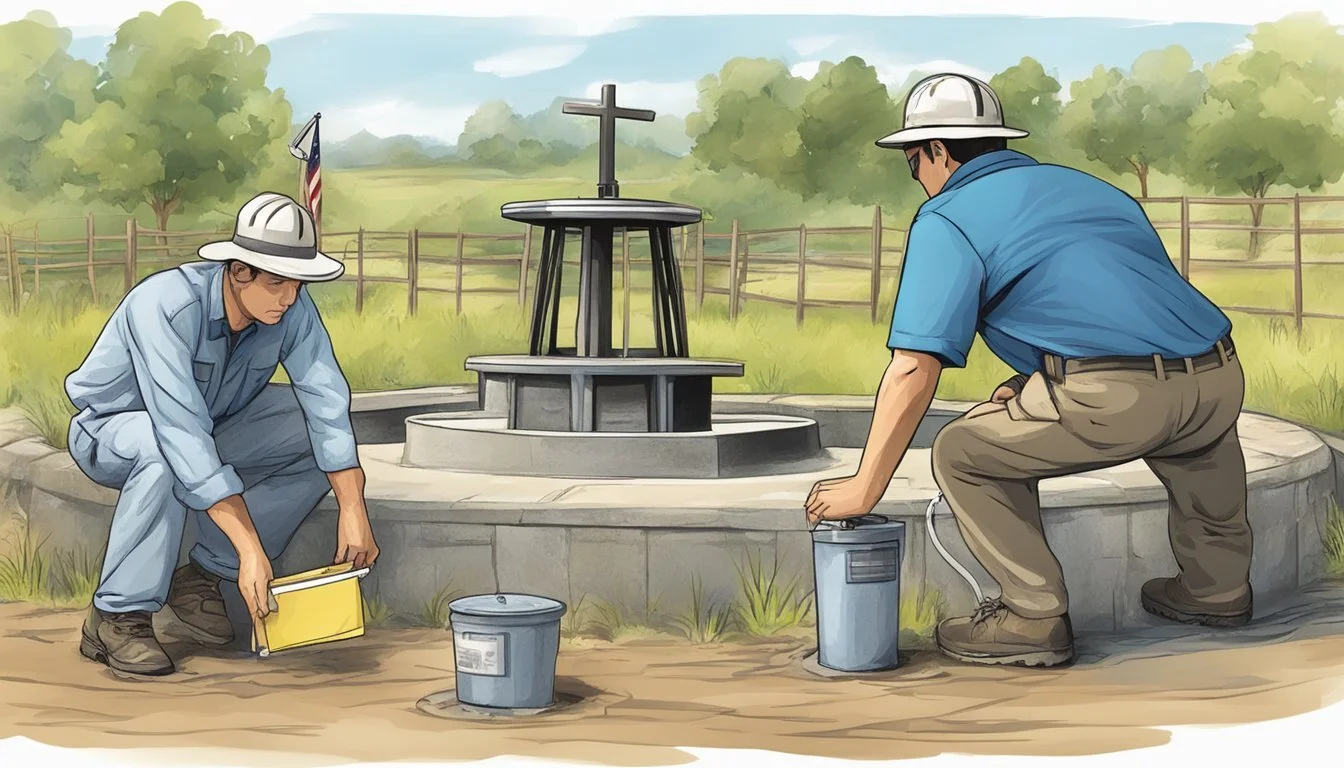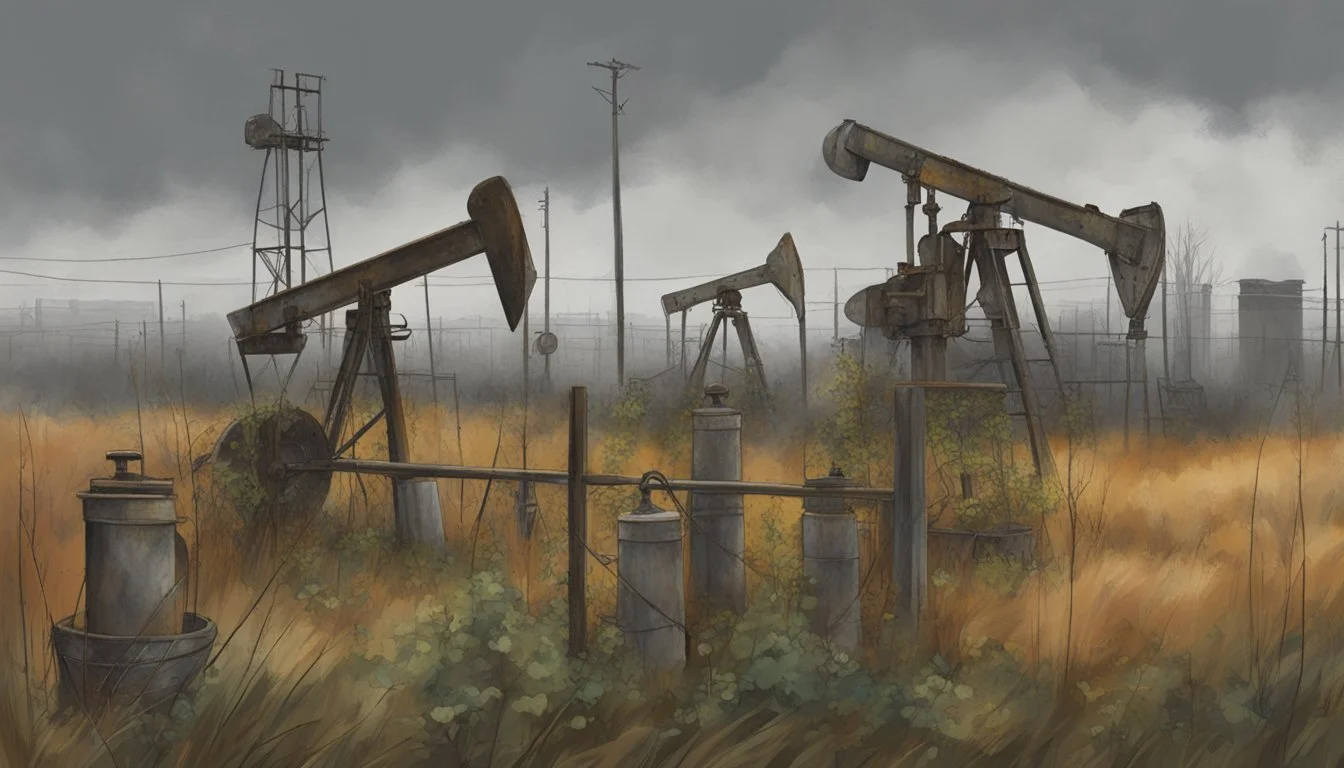Illinois Water Well Regulations
Understanding Compliance for Property Owners
Illinois has established a set of regulations to ensure that the construction and maintenance of water wells adhere to standards that protect public health and the environment. These regulations are encapsulated in the Illinois Water Well Construction Code, which mandates the proper construction, modification, and sealing of all water wells, with certain exceptions like community water wells. The Code is designed to prevent water contamination and to promote the provision of safe drinking water to the residents of Illinois.
The Illinois Department of Public Health is responsible for administering the licensing of water well and pump installation contractors. It regulates not just water wells but also closed loop systems as part of its private water and closed loop systems program. The intention is to safeguard the quality of water supply by overseeing the practices related to water well construction and maintenance.
In addition to state oversight, units of local government or health departments are empowered to issue water well and closed loop well permits within their jurisdictions. This local oversight is critical in monitoring compliance with both state-wide regulations and addressing area-specific concerns. Together, these regulations and oversight mechanisms work collaboratively to assure that water drawn from wells is potable and safe for consumption by Illinois residents.
Overview of Illinois Water Well Standards
Illinois takes the safety and regulation of its water resources seriously, with precise standards and responsibilities designated to oversee water well construction and groundwater protection. The state ensures that private, non-community, and some community water supplies meet stringent safety requirements to protect public health.
Illinois Department of Public Health Responsibilities
The Illinois Department of Public Health (IDPH) is charged with the oversight of water wells within the state. It is responsible for the licensing of water well and pump installation contractors as well as regulating the construction, modification, and sealing of all water wells except those classified as community water wells. The IDPH also rigorously reviews water well installation plans and issues permits for new well construction, ensuring that the provision of safe water remains uncompromised.
Illinois Water Well Construction Code
The Illinois Water Well Construction Code sets forth the standards for the design and construction of water wells to safeguard groundwater sources. The code encompasses detailed regulations on aspects such as design factors, location, construction materials, and other requirements. Established under the code, there are clear stipulations for drilled wells in both unconsolidated and consolidated formations, and provisions for special type wells, aligning with the state's policy to prevent water supplies contamination. For a comprehensive understanding, the Illinois Water Well Construction Code can be consulted for specifics on construction and operating standards, reflective of Illinois' commitment to maintaining public health and safety.
Well Construction Requirements
In Illinois, adherence to precise water well construction protocols ensures that wells are built safely and sustainably. Guidelines focus on securing proper permits, submitting detailed construction plans, and considering the environmental impact of the well location.
Permitting Process
Before initiating any water well construction, a permit must be obtained from either the Illinois Department of Public Health or an approved local health department. This legal document confirms the compliance of the construction project with state regulations. The application for the permit includes specifics of the construction to assert the safety and efficacy of the well.
Construction Plan Submission
A comprehensive construction plan must be submitted prior to receiving a permit. This plan should detail the design of the well, materials to be used, and construction method. Sign-off is required to ensure that all aspects of the plan meet the Illinois Water Well Construction Code, which includes specifications on structural integrity, potential contaminants control, and water testing procedures post-construction.
Location and Environmental Considerations
The placement of water wells is critical. The location must be chosen carefully to prevent contamination and protect both environmental health and the well's water quality. The construction site should be at a safe distance from potential pollutants, such as sewers, septic tanks, and other sources of contamination. Environmental protection measures are evaluated by the local health department to ensure that the ground surface, local ecosystems, and water tables are not adversely affected by the well construction.
Preventing Water Contamination
Ensuring water quality and safety is a pivotal responsibility of homeowners and regulatory bodies alike. This section will discuss the rigorous standards and regulations set forth by the Illinois Department of Public Health to prevent contamination of private water wells.
Contamination Sources and Prevention
Contaminants can compromise water quality, posing risks to public health. Common sources of contamination include improperly managed waste, agricultural runoff, and malfunctioning sewage seepage fields. Effective prevention strategies involve regular inspection, testing for potential contaminants, and maintaining a sanitary distance between wells and possible sources of pollution. The Illinois EPA mandates specific measures to safeguard groundwater from these threats.
Casing and Well Cap Regulations
The structural integrity of water wells is paramount to contamination prevention. The Illinois Department of Public Health (IDPH) stipulates that the space between the well casing and the borehole must be sealed with grout to prevent surface contaminants from entering. Well caps serve as a primary defense against direct contamination, and are required to be vermin-proof and securely attached to the casing. The casing itself must extend above the ground surface to avert contaminants from pooling at the wellhead.
Groundwater Protection Measures
The protection of groundwater resources from contamination is a collaborative effort between homeowners and regulatory authorities. Vital measures include delineation of protection areas around wells and implementation of land use controls that restrict activities posing a risk to water quality. In areas of high vulnerability, additional restrictions may be placed on sewage seepage fields to further protect against contamination. The IDPH provides detailed guidance on construction best practices to ensure the long-term integrity of water wells and the health of Illinois residents.
Operation and Maintenance
The operation and maintenance of water wells in Illinois are subject to rigorous regulations to ensure the safety and reliability of these essential water sources. Owners must adhere to regular inspection protocols, undertake well rehabilitation procedures when necessary, and maintain pumps and water systems in compliance with the Illinois Water Well Pump Installation Code.
Regular Inspection Protocols
Regular inspections are critical for the early detection of potential issues that could affect water quality or system performance. Owners must schedule comprehensive inspections that cover both the mechanical components and the structural integrity of the well. These should include checking for a watertight seal and ensuring that cement grout is properly applied to prevent surface contamination from entering the well.
Well Rehabilitation Procedures
Over time, wells may degrade in their performance, necessitating rehabilitation procedures. Rehabilitation involves cleaning, repairing, or upgrading well components to restore its original production capacity. This may include the process of redeveloping the well by removing incrustations from the screen or opening blocked sections of the aquifer to improve water flow.
Pump and Water System Maintenance
The maintenance of the water pump and related systems is essential for consistent operation. The Illinois Water Well Pump Installation Code dictates the standards for pump installation and maintenance. Following these standards helps in prolonging the lifespan of the pump and ensuring that the water delivered is safe for consumption. It is also crucial that any maintenance performed provides a continuous watertight seal to prevent contaminants.
By following these regulations, Illinois water well owners can guarantee the long-term viability and safety of their water wells.
Well Installation
Regulations in Illinois mandate that individuals or companies installing private water wells must possess the appropriate licensing, and they are required to adhere to specific well construction codes. These regulations ensure that water sources remain uncontaminated and safe for use.
Licensing and Registration Requirements
In Illinois, contractors involved in water well and pump installation must be licensed with the Illinois Department of Public Health (IDPH). The licensing of water well and pump installation contractors is part of a broader effort to regulate the construction, modification, and sealing of water wells, with the exception of community water wells.
Water Well Installation Plans
Before the commencement of any well installation, a detailed plan is required. The Illinois Water Well Construction Code necessitates that contractors submit well installation plans that mitigate the potential for contamination. Installation plans must ensure that well location and construction conform to the state's health and safety standards. These standards include specific distances from potential contamination sources, such as septic systems and animal confinement areas.
Compliance and Enforcement
In Illinois, compliance and enforcement of water well regulations are managed with great attention to detail to protect public health and the environment. The process ensures that any new well construction adheres to strict standards, and ongoing water quality is monitored systematically.
Permits for New Well Construction
Before constructing a new well, one must obtain a permit from the relevant authority, which often involves a fee. It is essential for cities and private entities to comply with this requirement, as it allows for the Illinois EPA to assess environmental protection measures. The permit application process reviews the planned site, design, and construction method to ensure they are effective and in line with state guidelines.
Monitoring and Reporting Requirements
The Illinois EPA mandates regular monitoring and reporting to guarantee the continuous safety of water supplies. Entities must frequently submit reports detailing various aspects of water quality and well operation. This sustained oversight is instrumental in the early detection of potential contamination or operational issues. Effective monitoring ensures that any problems are flagged and addressed promptly, upholding the integrity of Illinois' water systems.
Handling and Reporting Emergencies
In Illinois, strict protocols govern the handling and reporting of emergencies related to water wells. These measures are in place to ensure the safety of public and private water supplies and involve prompt communication with relevant emergency services and governmental organizations.
Emergency Response Protocols
The state mandates immediate action from Private Water system operators and owners when a water-related emergency occurs. They must assess the situation swiftly to determine if Public Health is at risk. If an emergency is declared, Emergency Services are alerted and a coordinated effort is initiated to manage the situation. Governmental Organizations, such as the Illinois Environmental Protection Agency, may provide support and resources to contain and resolve the incident.
Laboratories play an essential role in these emergencies, conducting urgent testing to gauge the impact on water quality. Italic steps such as restricting access to contaminated water, issuing boil orders, or providing alternative water sources are often implemented, with public safety being the top priority.
Notification and Communication Procedures
Communication during an emergency is critical. The Notification procedure entails:
Immediately informing local health departments and the Illinois Department of Public Health.
Utilizing established channels to alert affected communities, which may include methods such as public announcements, direct notification of households, or digital alert systems.
Public and Private water system operators must maintain updated contact lists for all stakeholders and ensure compliance with regulatory reporting requirements. Such reporting includes providing detailed information on the nature and extent of any contamination, the number of people affected, and the corrective actions taken.
Governmental Organizations act as the central point for information dissemination and coordination with other agencies, ensuring a structured and effective emergency response.
Decommissioning and Abandoned Wells
Decommissioning wells and managing hazards associated with abandoned wells are critical for protecting groundwater resources in Illinois.
Procedures for Proper Well Closure
Illinois Water Well Construction Code stipulates that any owner of a water well, boring, or monitoring well must seal the well within 30 days of abandonment or when it is no longer used. The sealing process should be undertaken by a licensed water well contractor to ensure the procedure complies with the state standards. Technical and financial assistance is available for owners who need to seal improperly abandoned wells, ensuring these procedures are accessible and perform a protective function against groundwater contamination.
Key Steps for Sealing Wells:
Remove all pumps, piping, and related materials.
Disinfect the well.
Fill the well with proper sealing materials, like grout or concrete.
File the completion report with the state.
Proper well decommissioning aids in preventing pollutants from entering groundwater through derelict pathways, maintaining the safety of both public and private wells.
Managing Abandoned Well Hazards
Abandoned wells can create a direct route for surface contaminants to reach the groundwater supply. It is essential to identify, document, and manage these potential hazards to safeguard environmental and public health. Illinois regulations require owners to seal abandoned wells to prevent such risks.
Hazard Management Strategies:
Locate and document all abandoned wells on the property.
Assess the condition of the well to determine the sealing approach.
Ensure no chemicals or waste are disposed of in the well.
Effective management of these hazards is a preventive measure, conserving vital groundwater resources and securing them for future use.
Additional Water Well Considerations
When it comes to water well regulation in Illinois, understanding the impact on surrounding land use and the coordination with other environmental regulations is paramount. These factors play a crucial role in the management and sustainability of water resources.
Impact on Surrounding Land Use
When a water well is constructed or reconstructed, careful consideration of the surrounding land use is imperative. The interaction between groundwater and surface water can be significant, especially in agricultural areas where irrigation is prevalent. The Illinois Water Well Construction Code necessitates assessments to ensure that the placement and operation of wells do not adversely affect neighboring land and water use.
Drinking Water Systems Code requires that both public and private drinking water systems comply with specific standards. These standards are set to safeguard public health and environmental protection. Any development of wells must take into account potential contamination from nearby land uses, ensuring that disinfection protocols are in place if risks are identified.
Coordination with Other Environmental Regulations
The construction and maintenance of water wells in Illinois are subject to a suite of environmental regulations. It's essential that these wells are developed in coordination with the state's environmental protection rules. For example, permits and inspections are crucial steps overseen by the Illinois Department of Public Health that ensure the safe construction and modification of water wells, excluding community water wells.
In addition, when wells are constructed for public use, they must also conform to the regulations overseen by the Illinois EPA, which monitors community drinking water systems. These regulations work in tandem to prevent contamination and to manage the resource in a way that does not harm the environment or public health.
Technical Specifications and Appendix
In the realm of water well construction in Illinois, the technical specifications and appendices offer detailed guidance for building and maintaining safe and compliant water systems. These documents are essential for contractors and developers ensuring adherence to state regulations and safeguarding public health.
Detailed Specifications for Well Components
These specifications outline the precise requirements for the construction and installation of well components. It is crucial that contractors adhere to the following standards:
Well Location: Wells must be positioned to prevent contamination from surface drainage and should be properly isolated from septic systems and other sources of pollutants.
Well Casing: The use of robust construction materials for well casing is mandated to prevent contamination and to ensure structural integrity.
Soil: Proper assessment of soil composition is required to determine the most appropriate well design and location.
Well Pits: The use of well pits is subject to specific conditions due to potential hazards, and must meet strict construction and location criteria.
Hand Pumps: If hand pumps are utilized, they must conform to standards that ensure safe drinking water, accommodating factors like material quality and resistance to corrosion.
Nitrate Testing: Routine testing for contaminants such as nitrates is a pivotal part of maintaining water quality, particularly in areas prone to agricultural runoff.
Resource Directory and Glossary
The appendix provides a directory of resources and a glossary to assist with understanding technical terms. Included in this section are:
Labor: Information on licensed contractors and regulatory requirements for labor involved in well construction and maintenance.
Public Buildings and Facilities: Guidelines on the unique specifications for wells serving public buildings and facilities, ensuring larger volumes and higher usage rates are safely accommodated.
Laundry Bleach and Chlorine: Specifications for the use of these chemicals in well sanitation are detailed, with attention to concentration levels and handling procedures to safeguard against well contamination.
Glossary: A comprehensive list of terms and definitions to aid in the interpretation of the specifications and ensure clear and accurate communication among professionals involved.
Frequently Asked Questions
This section addresses common inquiries about water well construction and regulation in Illinois, providing authoritative answers based on state guidelines and requirements.
What are the requirements for constructing a water well in Illinois?
In Illinois, the construction of water wells must meet the standards set by the Illinois Department of Public Health (IDPH). The IDPH ensures that water wells are constructed in a manner that provides safe drinking water, preventing contamination through rigorous construction, modification, and sealing standards.
How can one obtain a water well construction permit in Illinois?
Individuals seeking a water well construction permit should contact their local health department. The health department provides the necessary forms and guides applicants through the permitting process, which must align with the regulations for private water wells.
What are the legal guidelines for the proximity of water wells to property lines in Illinois?
The legal guidelines for well location relative to property lines are determined by local ordinances and the IDPH's environmental health standards. These guidelines are designed to prevent cross-contamination of water supplies and to protect public health.
How does one access the Illinois Water Well Database?
The Illinois Water Well Database, which contains records of water wells constructed in the state, is maintained by the Illinois State Water Survey. Individuals can access well logs and information through the database's online platform, enabling them to review historical data and records for specific wells.
What is the typical lifespan of a water well in Illinois?
The lifespan of a water well in Illinois varies depending on several factors including construction quality, maintenance, and local environmental conditions. Generally, a properly constructed and maintained well can provide service for 20 to 30 years before rehabilitation or replacement may be necessary.
What are the licensing requirements for water well drillers in Illinois?
Illinois requires that water well drillers be licensed by the Illinois Department of Public Health. Licensing ensures drillers are knowledgeable about state regulations and capable of constructing wells that meet health and safety standards.


